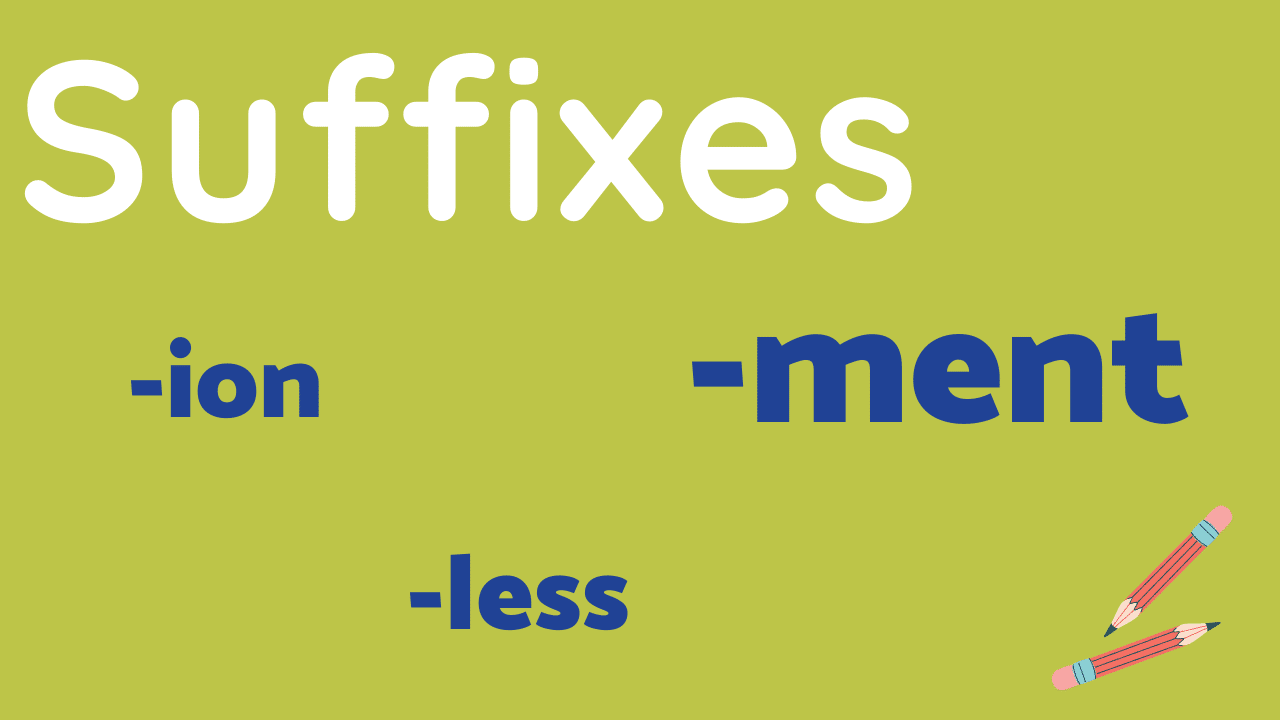What is a suffix?

Prefixes and suffixes are morphemes (morphemes are the smallest grammatical units that still have meaning). In this section, we will focus on the suffix — a morpheme that we add to the end of words to change their meaning.
One root word, for example, “improve” which is a verb, can become many types of words when you add different suffixes.
That’s why it’s so vital you learn suffixes so that you can apply them to each and every single word you know to increase your vocabulary by six-fold!
What is a suffix? — an introduction
Using the word previously mentioned, “improve”, let’s take a quick look at how many new words can be created just by adding a suffix.
By doing this, you’ll see the benefits of knowing how to use each suffix.
Example word: to improve
| Suffix | Word Category | Meaning | Examples |
|---|---|---|---|
| / | Verb: Improve | To become better or more desirable. | I want to improve my manners. We’re improving our skills. |
| –able | Adjective: Improvable | 'something can be improved', instead of 'improving', which is used to mean 'something or someone is indeed improving' | The situation is definitely improbable. |
| –ed | Adjective/past participle: Improved | –ed suffix describe that the entity is affected | You’re an improved man. |
| –ing | Gerund/adjective: Improving | The adjectival form of the gerund describes situations or states but not the entity. | He has improving features |
| –ly | Adverb: Improvably | Modifies adjectives, verbs, and other adverbs. | These results are improvably better. |
| –ility | Noun: Improvability | The state of being improved. | Improvability is key in our field. |
| -ment | Noun: Improvement | The process of improving. | Your improvement has really shown. |
| –er (-r for nouns ending in -e) | Noun: Improver | The person who improves. | We love improvers. |